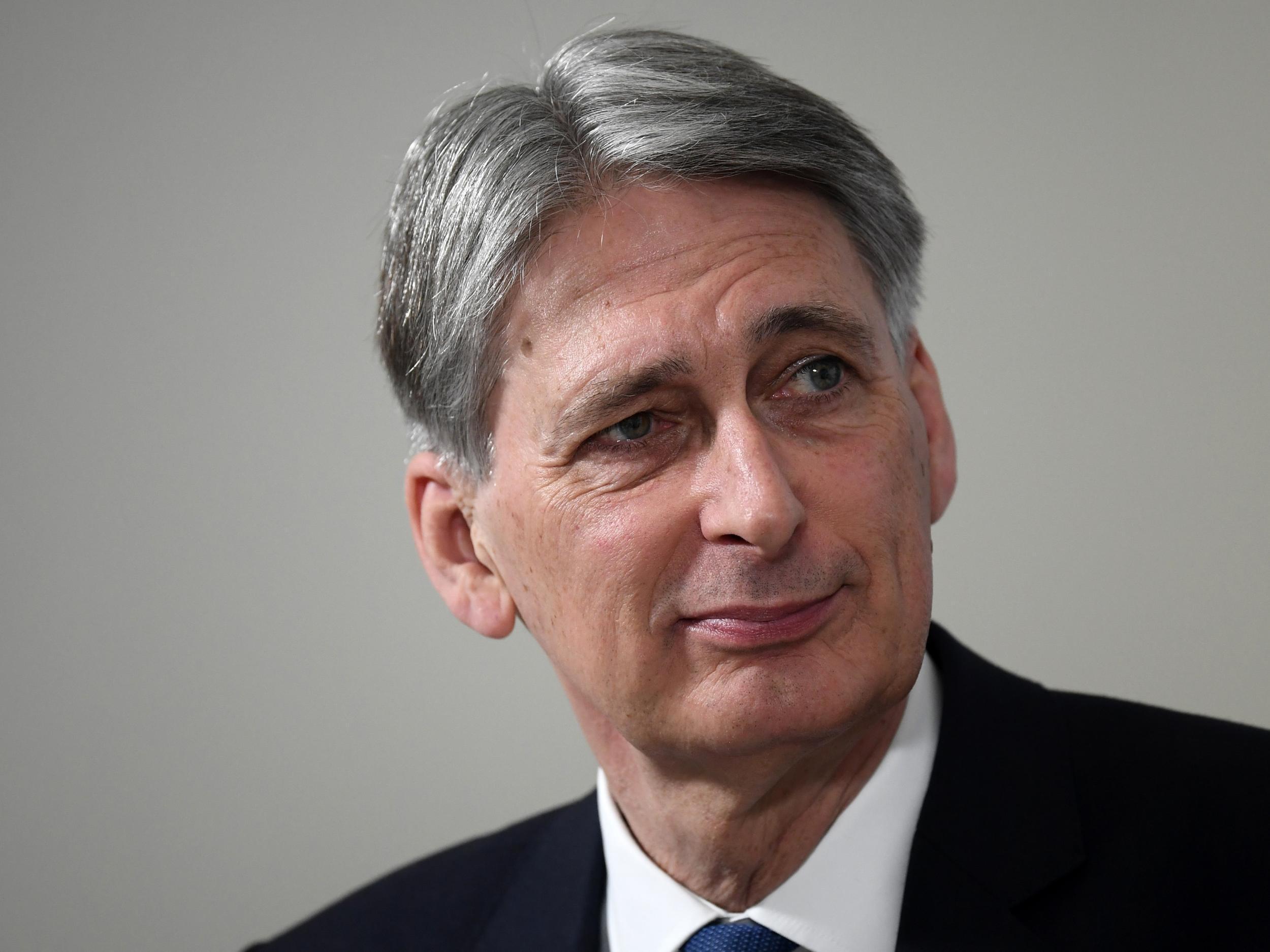Philip Hammond has 'come to heel' over Brexit as Theresa May returns, say anti-EU Conservatives
Opposition MPs agree Chancellor has 'caved in' after agreeing UK will leave the customs union during any transitional period

Your support helps us to tell the story
From reproductive rights to climate change to Big Tech, The Independent is on the ground when the story is developing. Whether it's investigating the financials of Elon Musk's pro-Trump PAC or producing our latest documentary, 'The A Word', which shines a light on the American women fighting for reproductive rights, we know how important it is to parse out the facts from the messaging.
At such a critical moment in US history, we need reporters on the ground. Your donation allows us to keep sending journalists to speak to both sides of the story.
The Independent is trusted by Americans across the entire political spectrum. And unlike many other quality news outlets, we choose not to lock Americans out of our reporting and analysis with paywalls. We believe quality journalism should be available to everyone, paid for by those who can afford it.
Your support makes all the difference.The Chancellor has “come to heel” after signing up to the Brexiteer agenda to end current trading rules with the EU immediately after Britain leaves, say gleeful Tories.
Opposition politicians agreed that Philip Hammond had “caved in” after signing an article saying the UK will leave the customs union during any transitional period after 2019.
In an article jointly written with Liam Fox, the International Trade Secretary, Mr Hammond agreed Britain should be free from that date to seek trade deals with non-EU countries.
The Chancellor’s shift, as Theresa May returns from her summer break, will make it harder to agree a smooth transition to cushion the economic shock from Brexit – which he had publicly argued for.
Vince Cable, the Liberal Democrat leader, said the joint article with the anti-EU Dr Fox showed Mr Hammond was not “fighting off the more extreme Brexiteers.”
“Supposedly he was looking for a compromise to keep Britain within the customs union and single market as long as possible,” Sir Vince said.
“The rebellion didn't last very long. He has now teamed up with one of the more extreme and ideological supporters of a 'hard Brexit'.”
Richard Corbett, deputy leader of Labour's MEPs, said the Chancellor had “caved in” and the Government was now aiming for the most damaging version of Brexit.
A delighted David Jones, the pro-Leave Tory and former Brexit minister, said: “It was a clear case of when the cat's away the mice will play.
“Theresa May left them and we had all kinds of stuff from Hammond which was unhelpful, including what appeared to be a misrepresentation of Liam's position.
“By getting the two protagonists together to come up with an agreed statement looks very much like No 10 knocking heads together.
“Her position is enormously strengthened because she has shown she can get Mr Hammond to come to heel.”
Another Brexiteer, backbencher Nigel Evans, said: “The flying of kites is a well-seasoned tradition especially during the summer months and that kite has now been cut adrift and is floating away. There will be no endless transition period.”
Over the summer, Mr Hammond broke ranks to call for an “off-the-shelf” transitional deal for up to three years, keeping current trading arrangements and rules on movement of workers.
But Dr Fox made clear he would accept a transition only if he was able to seek and sign trade deals with non-EU countries from day one – and now appears to have won that battle.
In the article, the pair wrote: “We will leave the customs union and be free to negotiate the best trade deals around the world as an independent, open, trading nation.”
They added: “When we've left the customs union, we will build on these relationships by negotiating as an independent nation with the freedom to sign bilateral free trade agreements.”
The article stressed that any “interim period” would be time-limited and “cannot be a back door to staying in the EU” – while also allowing borders “to operate smoothly”.
However, the two ministers did not explain why they believed the EU would agree to such arrangements, in the exit talks due to resume at the end of the month.
Join our commenting forum
Join thought-provoking conversations, follow other Independent readers and see their replies
Comments